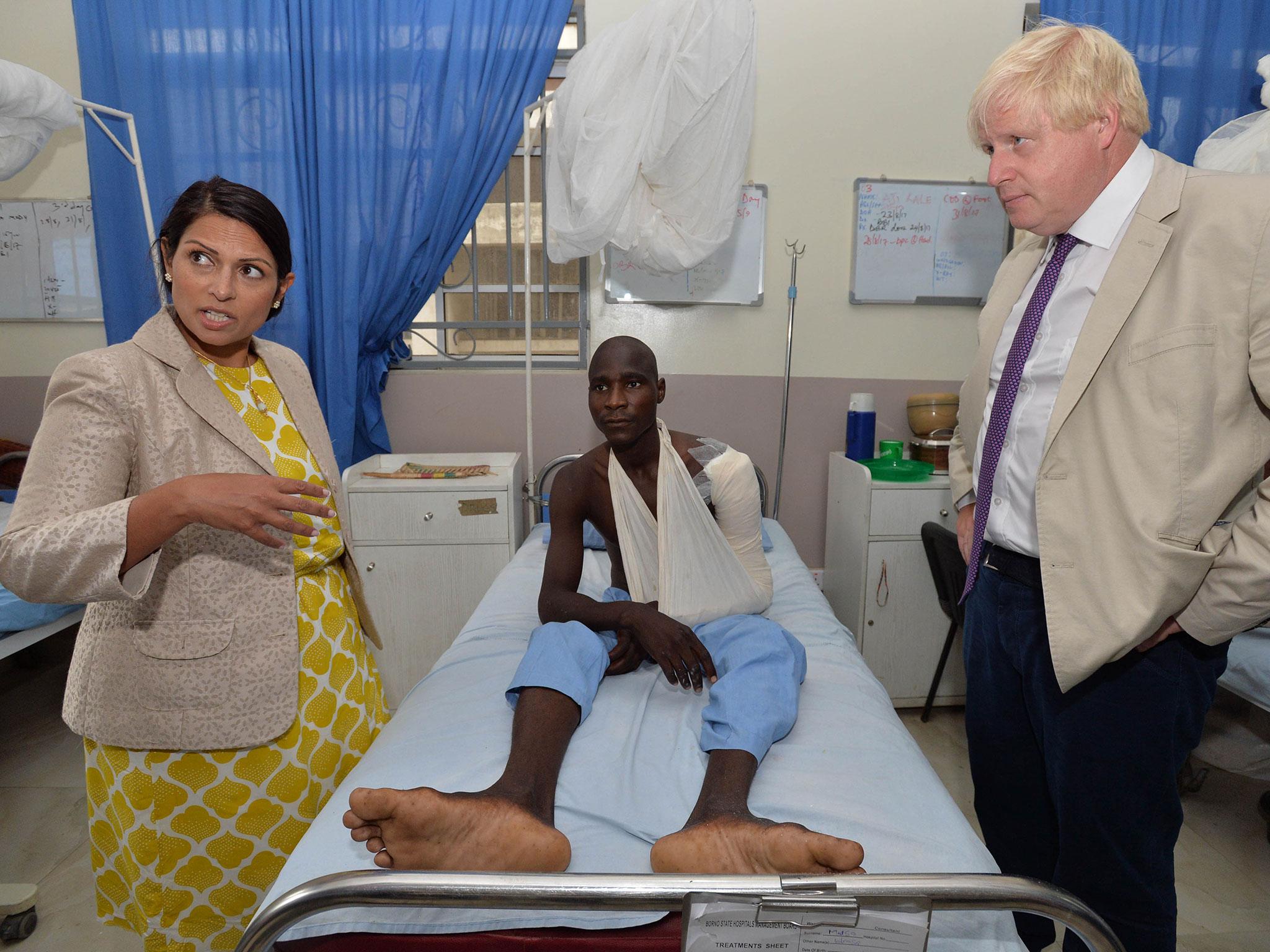Priti Patel: Modern day slavery must be tackled at source 'like terrorism'
UK commits £7m to be spent around world

Priti Patel, the Secretary of State for International Development, has backed the Independent and Evening Standard special investigation into modern slavery.
In an exclusive interview, the cabinet minister stressed the urgency of the investigation as she pledged to commit millions of pounds to tackle the problems exposed by this campaign.
Men and women trafficked from countries all over the world end up in modern slavery in the UK.
The Independent Anti-Slavery Commissioner believes there are at least 13,000 in total in this country, while others have estimated the total to be in tens of thousands.
"[Modern slavery] is like terrorism," said Patel. "If we don't tackle the root causes, the victims will come to Europe via Libya and Italy, and those problems will manifest themselves on the streets of London."
"It's why the Independent and Evening Standard special investigation into modern slavery is absolutely vital. We have to give a voice to people who don't have voices."
Ms Patel’s promise to back the objectives campaigned for by this newspaper is particularly to be celebrated as she has the responsibility for British government efforts in some of the key source countries for victims of human trafficking.
During a recent a trip to Nigeria she saw first-hand some of the conditions that lead to men, women and children, some as young as seven, being trafficked to Europe. Nigeria is the third most common origin country for victims of modern slavery in the UK.
"I hadn't appreciated the scale of it, the sheer numbers, the brutality," said Ms Patel. "What these victims go through is harrowing. There are 46 million victims of modern slavery around the world in modern slavery, and the profits are on a par with the drugs trade."
She told the Independent £7m of extra funding would be focused on Nigeria to prevent modern slavery. Worries about corruption mean that DfID does not give money directly to the Nigerian government. Instead it supports alternative local institutions, raising awareness among young women and helping to create alternative job prospects, especially in Edo State, where most trafficked women come from.
"We need to get the word out, so that these young girls know the full facts. If they knew more about the rape and starvation and prostitution, they might not be so likely to think the grass is greener."
But Britain cannot go it alone, she said. Slavery is a globalised problem, and a lack of cooperation between different countries creates loopholes in which criminals can operate. Patel said that modern slavery is a subject on which Britain is taking the lead.
Speaking before the UN General Assembly two weeks ago, the Prime Minister called on the world to step up and join Britain’s efforts.
"The Prime Minister deserves credit for putting the Modern Slavery Act legislation in place," Patel says. "She speaks very firmly about the great injustices of our time, and this is one of them. She has given voice to the issue."
And intervention on the ground, whether in Nigeria, Albania, Vietnam or any other origin country, is only part of the battle, she continued. The message needs to also get through on the ground to Londoners, too.
"We have to intervene, and tell the British public that this is organised criminality," says Patel. "It's not just the prostitution rackets, but what happens to the girls, the processes by which they're brought to UK.
"Your readers need to be aware of these young girls, and think of them and their futures. These are the people we're trying to help. We all need to get our finger out and stop this."
Subscribe to Independent Premium to bookmark this article
Want to bookmark your favourite articles and stories to read or reference later? Start your Independent Premium subscription today.
